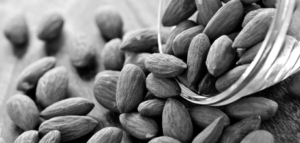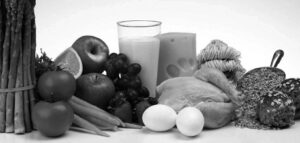
Make 2014 both a happy and healthy new year, with these 5 pledges to help you to look and feel greater than ever.
1. Get enough shut-eye
It is recommended that you get at least seven to nine hours sleep a night. This gives your body enough rest to repair, burn fat and ward off stress.
The main three factors causing lack of sleep are caffeine, stress and alcohol. As well as reducing these, try the following foods to help you get a goodnights sleep:
- Eggs – provide tryptophan, which our bodies convert to serotonin, then store as the sleep chemical melatonin. Start your day with eggs to reap the benefits at night.
- Kiwi – research shows that eating 2 kiwis an hour before bed increases the average nightly kip and boosts sleep quality.
2. Eat a healthy, balanced diet
A balanced diet starts with eating lots of fresh vegetables, protein, good fats and carbohydrates (yes some carbohydrates are actually good for you!).
Not all carbohydrates are an enemy. Many of us fear the consequences of this food group and their associations with weight gain have stuck with many dieters. It’s the refined carbohydrates (like white bread, white sugar, and sweets) that you need to avoid.
Complex carbohydrates, like whole grains, help to maintain well-controlled blood sugar levels. Keeping you energized, slim, and healthy.
And if you need another reason not to curb the carbs, this macronutrient is in fact the only fuel that our brains can utilise, so without this our brain health and memory deteriorate.
3. Get active
Hit the gym, take a walk or go for a bike ride. Whatever you do, just get moving!
Regular exercise is not only good for your physical health (helping to reduce the risk of cancer, heart disease and strokes, as well as maintaining bodyweight), but it can boost your mental health too.
When you exercise, your body releases chemicals called endorphins, which trigger a positive mood making you feel happier and increasing your self-esteem.
4. Drink more water
Staying hydrated is one of the easiest things you can do for energy. When you skimp on water, the cells in your body shrink, so they can’t function as efficiently. This triggers feelings of fatigue.
The signs of mild dehydration, such as low energy and sleepiness, can dupe your brain into craving food. Many people confuse that empty-pit feeling in your belly as hunger, but in fact it’s quite often triggered by thirst.
Water is the perfect hydrator and drinking plenty of it helps flush away toxins that build up in our cells. You should aim to drink at least 1.2 litres of fluid (six to eight 250ml glasses) a day.
5. Stand Tall
Good posture is probably the world’s simplest beauty secret. It makes you instantly look taller and slimmer. You take in more oxygen, improving your skin and creating a wealth of new energy.
The perfect poise will help you look and feel more confident. To improve your posture, just follow these simple steps:
- Look in a full-length mirror, from the front and the sides.
- Firstly, observe and get to know your natural stance. Check if you have slipped into bad habits (i.e. is your pelvis sticking out?, is your back arched?, are your shoulders rounded?, etc)
- Correct any deviations so that your feet are slightly apart, with toes pointing forward. Imagine pulling your body upwards, starting at your neck and pulling up through your chest to your waist and hips. Feel the gap between your shoulders and ears lengthening, and each vertebra spreading out from its neighbours.
- Now focus on engaging your abdominal muscles. Pull your navel back towards your spine, whilst continuing to breath normally and tucking your bottom in.
- Correct your posture every time you think of it. Soon your body will retrain and good posture will become automatic.








